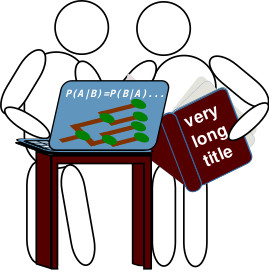Computer-Assisted Language Comparison (CALC)
By comparing the languages of the world, we gain invaluable insights into human prehistory, predating the appearance of written records by thousands of years. The traditional methods for language comparison are based on manual data inspection. With more and more data available, they reach their practical limits. Computer applications, however, are not capable of replacing experts’ experience and intuition. In a situation where computers cannot replace experts and experts do not have enough time to analyze the massive amounts of data, a new framework, neither completely computer-driven, nor ignorant of the help computers provide, becomes urgent. Such frameworks are well-established in biology and translation, where computational tools cannot provide the accuracy needed to arrive at convincing results, but do assist humans to digest large data sets.
Our research group on Computer-Assisted Language Comparison (CALC) develops computer-assisted frameworks for historical linguistics and linguistic typology. We apply them to address key questions in historical linguistics, linguistic typology, and human cognition. We pursue an interdisciplinary approach that adapts methods from computer science and bioinformatics for the use in historical linguistics and linguistic typology. While purely computational approaches are common today, our research focuses on the communication between classical and computational linguists. We develop interfaces that allow comparative linguists to produce their data in machine-readable formats, while at the same time presenting the results of computational analyses in a transparent and human-readable way.
Funded from April 2017 until March 2022 in the form of an ERC Starting grant by the European Union, the group is being continued from April 2022 until May 2024 with funding from the Max Planck Society. In addition, doctoral students associated with us are funded through the International Max Planck Research School for the Science of Human History in Jena and by the Argentinian Research Agency.
Project website: https://digling.org/calc/
Group members
Group leader (Guest)
Doctoral Student
Affiliated Doctoral Student
- Nicolás Brid
Student Assistant
- Carlos Barrientos Ugarte
